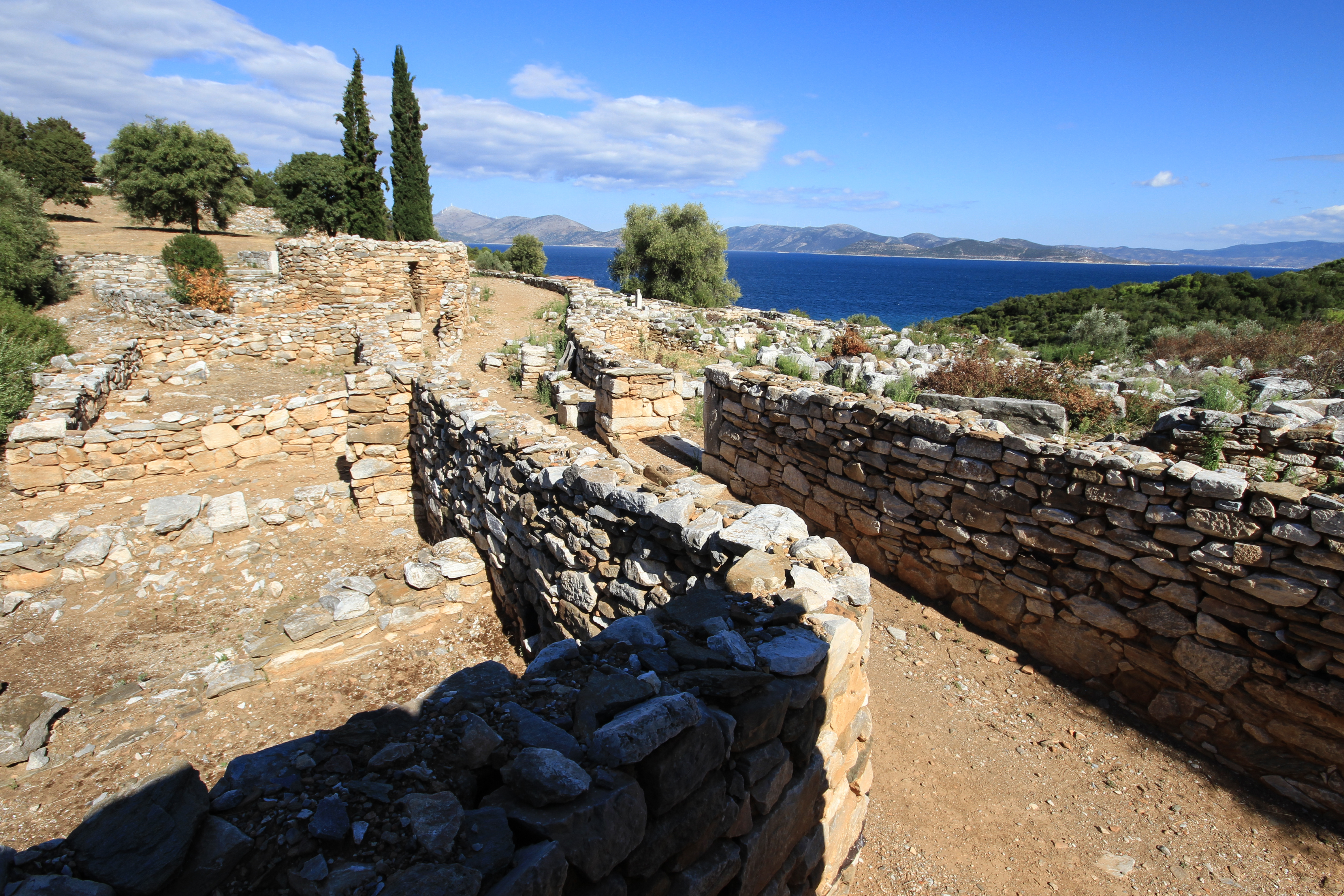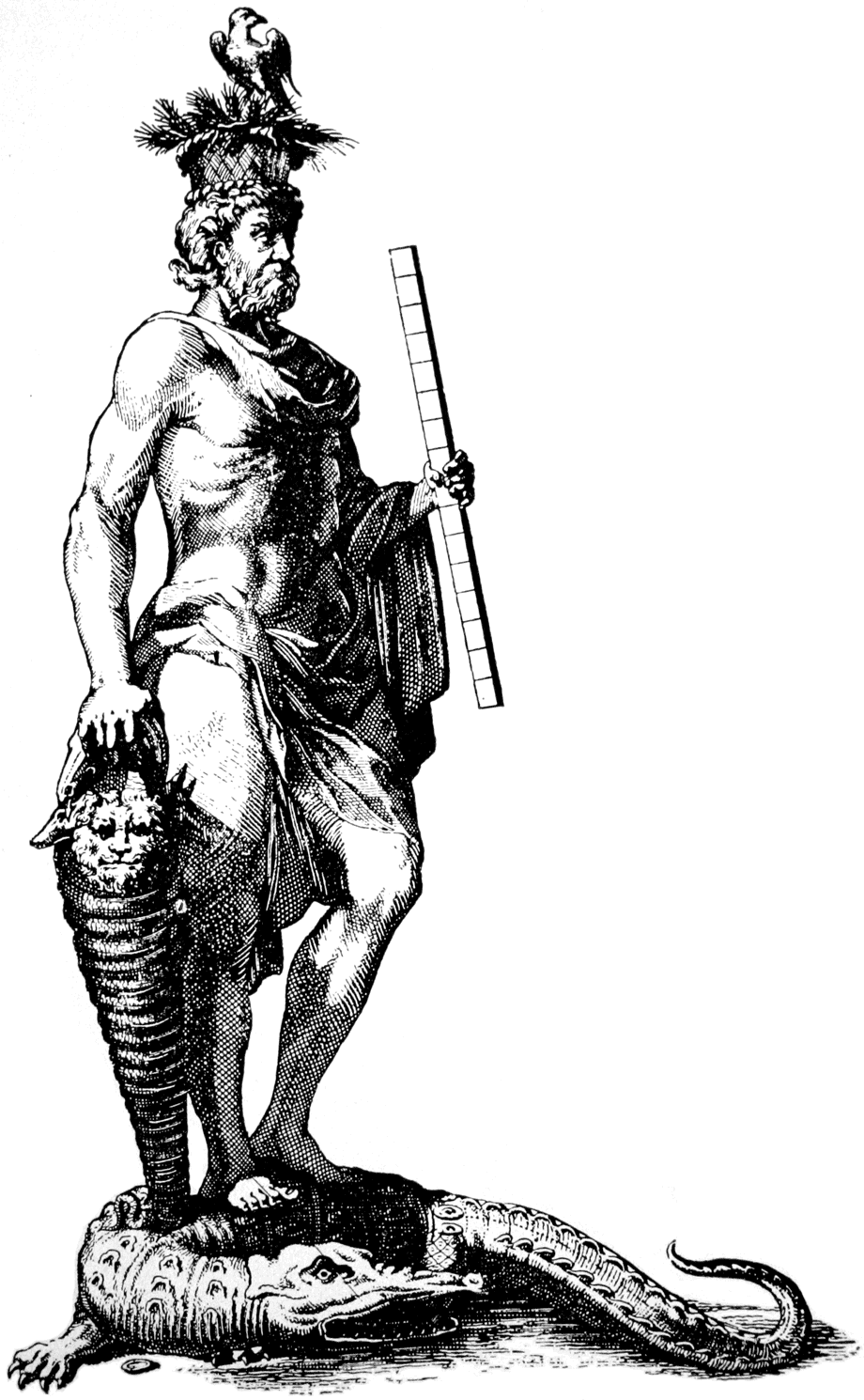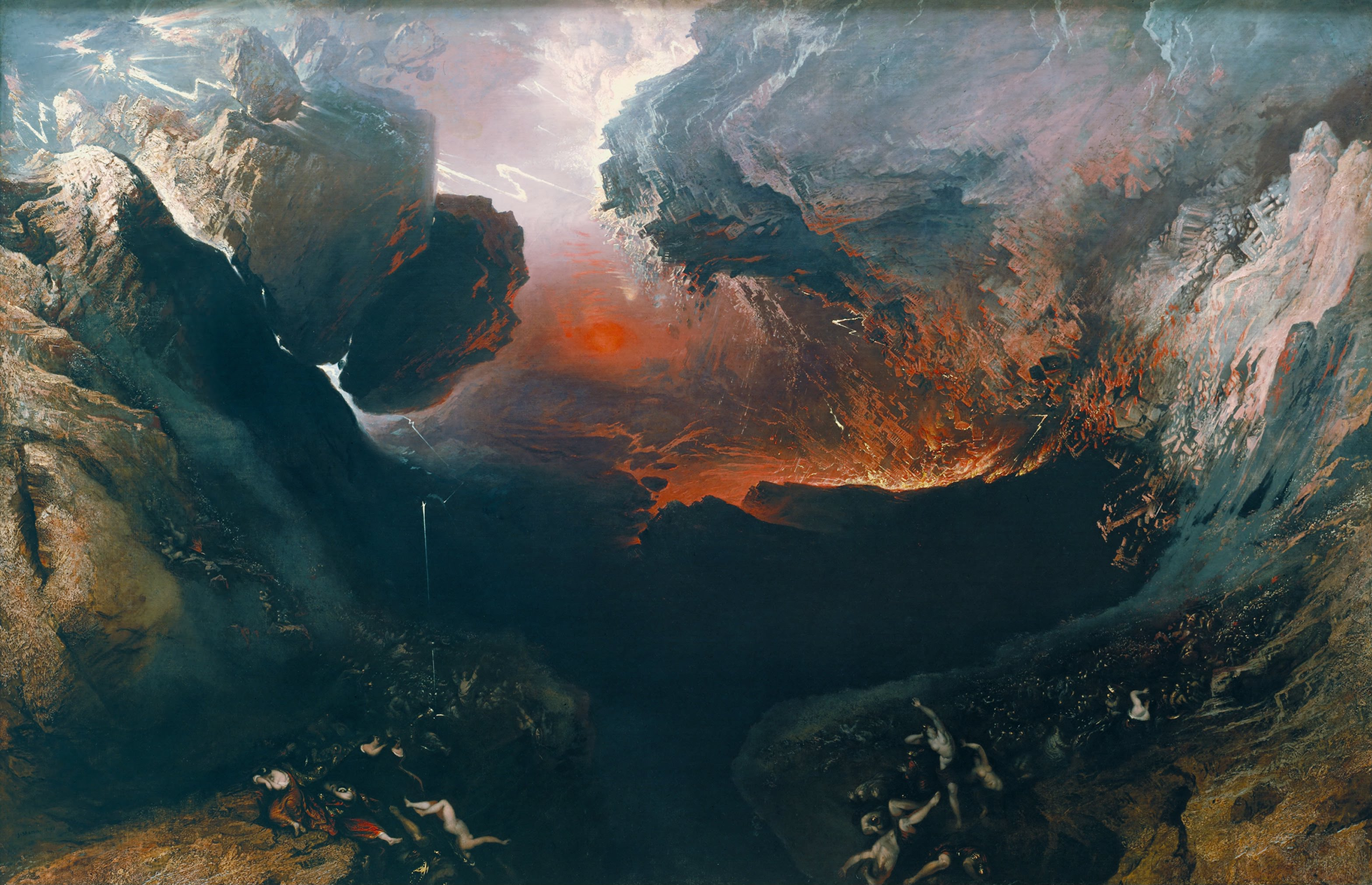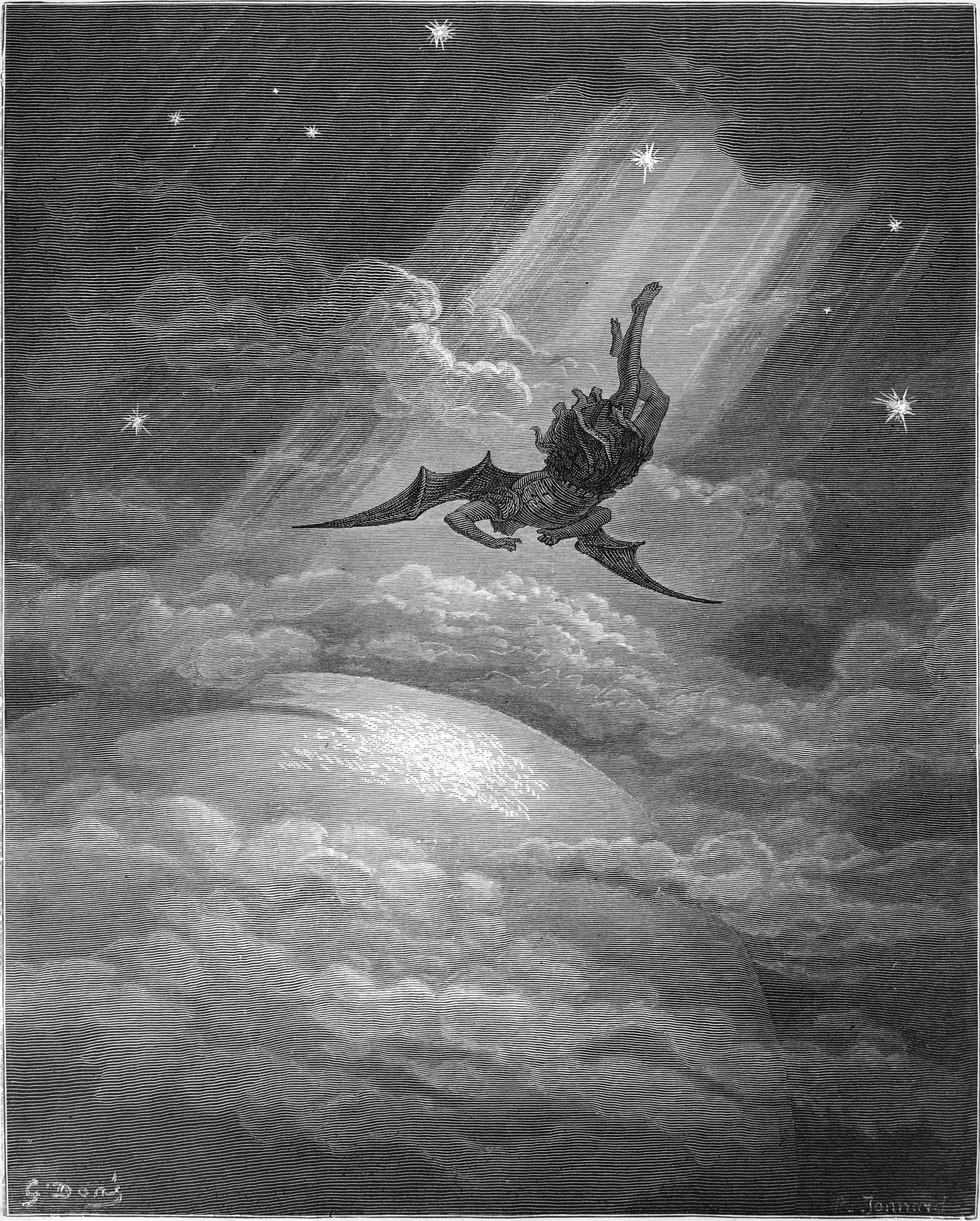|
Nemesis
In ancient Greek religion and myth, Nemesis (; ) also called Rhamnousia (or Rhamnusia; ), was the goddess who personified retribution for the sin of hubris: arrogance before the gods. Etymology The name ''Nemesis'' is derived from the Greek word , ''némein'', meaning "to give what is due", from Proto-Indo-European *''nem-'' "distribute". Family According to Hesiod's ''Theogony'', Nemesis was one of the children of Nyx alone. Nemesis has been described as the daughter of Oceanus, Erebus, or Zeus, but according to Hyginus she was a child of Erebus and Nyx. Some made her the daughter of Zeus by an unnamed mother. In several traditions, Nemesis was seen as the mother of Helen of Troy by Zeus, adopted and raised by Leda and Tyndareus. According to the Byzantine poet Tzetzes, Bacchylides had Nemesis as the mother of the Telchines by Tartarus. Mythology Fortune and retribution The word ''nemesis'' originally meant the distributor of fortune, neither good nor bad ... [...More Info...] [...Related Items...] OR: [Wikipedia] [Google] [Baidu] |
Rhamnousia
In ancient Greek religion and Greek mythology, myth, Nemesis (; ) also called Rhamnousia (or Rhamnusia; ), was the goddess who personified divine retribution, retribution for the sin of hubris: arrogance before the gods. Etymology The name ''Nemesis'' is derived from the Greek language, Greek word , ''némein'', meaning "to give what is due", from Proto-Indo-European *''nem-'' "distribute". Family According to Hesiod's ''Theogony'', Nemesis was one of the children of Nyx alone. Nemesis has been described as the daughter of Oceanus, Erebus, or Zeus, but according to De astronomia, Hyginus she was a child of Erebus and Nyx. Some made her the daughter of Zeus by an unnamed mother. In several traditions, Nemesis was seen as the mother of Helen of Troy by Zeus, adopted and raised by Leda (mythology), Leda and Tyndareus. According to the Byzantine poet Tzetzes, Bacchylides had Nemesis as the mother of the Telchines by Tartarus. Mythology Fortune and retribution The word ''ne ... [...More Info...] [...Related Items...] OR: [Wikipedia] [Google] [Baidu] |
Rhamnous
Rhamnous (; ), also Ramnous or Rhamnus, was an ancient Greek city in Attica situated on the coast, overlooking the Euboean Strait. Its ruins lie northwest of the modern town of Agia Marina in the municipality of Marathon. The site was best known in antiquity for its sanctuary of Nemesis, the implacable avenging goddess, her most important in ancient Greece. Rhamnous is the best-preserved Attic deme site. It was strategically significant on the sea routes and was fortified with an Athenian garrison of '' ephebes'' (young men). A fortified acropolis dominates the two small harbours located on either side of it which have silted up extensively since antiquity, and into which grain was imported for Athens during the Peloponnesian War. It derived its name from Buckthorn, a thick prickly shrub, which still grows upon the site. Location Rhamnus was situated on the east coast of Attica. The town occupied a small plain 3 miles (5 km) wide, atop a rocky peninsula surrounded b ... [...More Info...] [...Related Items...] OR: [Wikipedia] [Google] [Baidu] |
Helen Of Troy
Helen (), also known as Helen of Troy, or Helen of Sparta, and in Latin as Helena, was a figure in Greek mythology said to have been the most beautiful woman in the world. She was believed to have been the daughter of Zeus and Leda (mythology), Leda or Nemesis, and the sister of Clytemnestra, Castor and Pollux, Castor, Pollux, Philonoe, Phoebe (mythology), Phoebe and Timandra (mythology), Timandra. She was married first to King Menelaus of Sparta "who became by her the father of Hermione (mythology), Hermione, and, according to others, of Nicostratus (mythology), Nicostratus also." Her subsequent marriage to Paris (mythology), Paris of Troy was the most immediate cause of the Trojan War. Elements of her putative biography come from classical authors such as Aristophanes, Cicero, Euripides, and Homer (in both the ''Iliad'' and the ''Odyssey''). Her story reappears in Book II of Virgil's ''Aeneid''. In her youth, she was abducted by Theseus. A competition between her suitors ... [...More Info...] [...Related Items...] OR: [Wikipedia] [Google] [Baidu] |
Telchines
In Greek mythology, the Telchines () were the original inhabitants of the island of Rhodes and were known in Crete and Cyprus. Family Their parents were either Pontus (mythology), Pontus and Gaia (mythology), Gaia or Tartarus and Nemesis (mythology), Nemesis or else they were born from the blood of castrated Uranus (mythology), Uranus, along with the Erinyes.Tzetzes on ''Theogony'' 80 with Bacchylides as the authority for Telchines' parentage, being sons of Nemesis and Tartarus. According to Diodorus Siculus, the Telchines were the offspring of Thalassa (mythology), Thalassa.Diodorus Siculus5.55.1/ref> They had flippers instead of hands and the heads of dogs and were known as fish children.Eustathius of Thessalonica, Eustathius on Homer, p. 771 In some accounts, Poseidon was described as the Telchines' father.Nonnus, ''Dionysiaca'' 14.36 ff Names The following individual names are attested in various sources: Damon (Demonax (mythology), Demonax); Mylas (mythology), Mylas; Atabyrius ... [...More Info...] [...Related Items...] OR: [Wikipedia] [Google] [Baidu] |
Theogony
The ''Theogony'' () is a poem by Hesiod (8th–7th century BC) describing the origins and genealogy, genealogies of the Greek gods, composed . It is written in the Homeric Greek, epic dialect of Ancient Greek and contains 1,022 lines. It is one of the most important sources for the understanding of early Greek cosmology. Descriptions Hesiod's ''Theogony'' is a large-scale synthesis of a vast variety of local Greece, Greek traditions concerning the gods, organized as a narrative that tells how they came to be and how they established permanent control over the cosmos. It is the first known Greece, Greek mythical cosmogony. The initial state of the universe is Chaos (mythology), chaos, a dark indefinite void considered a divine primordial condition from which everything else appeared. Theogonies are a part of Greek mythology which embodies the desire to articulate reality as a whole; this universalizing impulse was fundamental for the first later projects of speculative theorizing ... [...More Info...] [...Related Items...] OR: [Wikipedia] [Google] [Baidu] |
Zeus
Zeus (, ) is the chief deity of the List of Greek deities, Greek pantheon. He is a sky father, sky and thunder god in ancient Greek religion and Greek mythology, mythology, who rules as king of the gods on Mount Olympus. Zeus is the child of Cronus and Rhea (mythology), Rhea, the youngest of his siblings to be born, though sometimes reckoned the eldest as the others required disgorging from Cronus's stomach. In most traditions, he is married to Hera, by whom he is usually said to have fathered Ares, Eileithyia, Hebe (mythology), Hebe, and Hephaestus.Hard 2004p. 79 At the oracle of Dodona, his consort was said to be Dione (Titaness/Oceanid), Dione, by whom the ''Iliad'' states that he fathered Aphrodite. According to the ''Theogony'', Zeus's first wife was Metis (mythology), Metis, by whom he had Athena.Hesiod, ''Theogony'886900 Zeus was also infamous for his erotic escapades. These resulted in many divine and heroic offspring, including Apollo, Artemis, Hermes, Persephone, D ... [...More Info...] [...Related Items...] OR: [Wikipedia] [Google] [Baidu] |
Measuring Rod
A measuring rod is a tool used to physically length measurement, measure lengths and surveying, survey areas of various sizes. Most measuring rods are round or square sectioned; however, they can also be flat boards. Some have markings at regular intervals. It is likely that the measuring rod was used before the line, chain or steel tapes used in modern measurement. History Ancient Sumer The oldest preserved measuring rod is a copper-alloy bar which was found by the Germans, German Assyriology, Assyriologist Eckhard Unger while excavating at Nippur (pictured below). The bar dates from c. 2650 BC. and Unger claimed it was used as a measurement standard. This irregularly formed and irregularly marked ''graduated rule'' supposedly defined the ''Sumerian cubit'' as about , although this does not agree with other evidence from the statues of Gudea from the same region, five centuries later. Ancient India Rulers made from ivory were in use by the Indus Valley Civilization in what ... [...More Info...] [...Related Items...] OR: [Wikipedia] [Google] [Baidu] |
Leda (mythology)
In Greek mythology, Leda (; Ancient Greek: Λήδα ), also rendered Lede, was an Aetolian princess who became queen consort of Sparta through her marriage to King Tyndareus. Zeus fell in love with Leda, and to avoid his wife Hera's jealousy, raped her while disguised as a swan. Leda was named as the mother of four famous children in Greek mythology: Helen of Troy, Clytemnestra, and the twins Castor and Pollux. Leda and the Swan was a popular motif in the visual arts, particularly during the Renaissance. Family Leda is most commonly named as a daughter of the Aetolian king Thestius,Apollodorus, ''Library''3.10/ref>Euripides, ''Iphigenia in Aulis''49/ref> son of Ares, and was occasionally referred to as Thestias. Her mother is disputed, and could have been Leucippe,Hyginus, ''Fabulae''14.3/ref> Deidameia, daughter of Perieres, Eurythemis, daughter of Cleoboea,Apollodorus, ''Library''1.7.10/ref> or Laophonte, daughter of Pleuron.Alcman, fr .15 as cited in Scholia on ... [...More Info...] [...Related Items...] OR: [Wikipedia] [Google] [Baidu] |
Divine Retribution
Divine retribution is supernatural punishment of a person, a group of people, or everyone by a deity in response to some action. Many cultures have a story about how a deity imposed punishment on previous inhabitants of their land, causing their doom. An example of divine retribution is the story found in many religions about a great flood destroying all of humanity, as described in the Epic of Gilgamesh, the Hindu Vedas, or the Book of Genesis (6:9–8:22), leaving one principal 'chosen' survivor. In the first example, the survivor is Utnapishtim, in the Hindu Vedas, it is Manu, and in the last example, it is Noah. References in the Old Testament and the Quran to a man named Nuh (Noah) who was commanded by God to build an ark also suggest that one man and his followers were saved in a great flood. Other examples in Bible history include the dispersion of the builders of the Tower of Babel (Genesis 11:1–9), the destruction of Sodom and Gomorrah (Genesis 18:20–21, 19: ... [...More Info...] [...Related Items...] OR: [Wikipedia] [Google] [Baidu] |
Erebus
In Greek mythology, Erebus (; ), or Erebos, is the personification of darkness. In Hesiod's ''Theogony'', he is the offspring of Chaos, and the father of Aether and Hemera (Day) by Nyx (Night); in other Greek cosmogonies, he is the father of Aether, Eros, and Metis, or the first ruler of the gods. In genealogies given by Roman authors, he begets a large progeny of personifications upon Nox (the Roman equivalent of Nyx), while in an Orphic theogony, he is the offspring of Chronos (Time). The name "Erebus" is also used to refer either to the darkness of the Underworld, the Underworld itself, or the region through which souls pass to reach Hades, and can sometimes be used as a synonym for Tartarus or Hades. Etymology The meaning of the word ''Érebos'' ( Ἔρεβος) is "darkness" or "gloom", referring to that of the Underworld. It derives from the Proto-Indo-European ' ("darkness"), and is cognate with the Sanskrit '' rájas'' ("dark (lower) air, dust"), the Armenian '' er ... [...More Info...] [...Related Items...] OR: [Wikipedia] [Google] [Baidu] |
Hubris
Hubris (; ), or less frequently hybris (), is extreme or excessive pride or dangerous overconfidence and complacency, often in combination with (or synonymous with) arrogance. Hubris, arrogance, and pretension are related to the need for victory (even if it does not always mean winning) instead of reconciliation, which "friendly" groups might promote. Hubris is usually perceived as a characteristic of an individual rather than a group, although the group the offender belongs to may suffer collateral consequences from wrongful acts. Hubris often indicates a loss of contact with reality and an overestimation of one's own competence, accomplishments, or capabilities. The term ''hubris'' originated in Ancient Greek, where it had several different meanings depending on the context. In legal usage, it meant assault or sexual crimes and theft of public property, and in religious usage it meant emulation of divinity or transgression against a god. Ancient Greek origin In ancient ... [...More Info...] [...Related Items...] OR: [Wikipedia] [Google] [Baidu] |
Tzetzes
John Tzetzes (; , Constantinople – 1180, Constantinople) was a Byzantine poet and grammarian who lived at Constantinople in the 12th century. He is known for making significant contributions in preserving much valuable information from ancient Greek literature and scholarship. Of his numerous works, the most important one is the ''Book of Histories'', also known as ('Thousands'). The work is a long poem containing knowledge that is unavailable elsewhere and serves as commentary on Tzetzes's own letters. Two of his other important works are the on the ''Iliad'' and the ''Odyssey'', which are long didactic poems containing interpretations of Homeric theology. Biography Tzetzes described himself as pure Greek on his father's side and part Iberian ( Georgian) on his mother's side. In his works, Tzetzes states that his grandmother was a relative of the Georgian Bagratid princess Maria of Alania who came to Constantinople with her and later became the second wife of the '' s ... [...More Info...] [...Related Items...] OR: [Wikipedia] [Google] [Baidu] |







